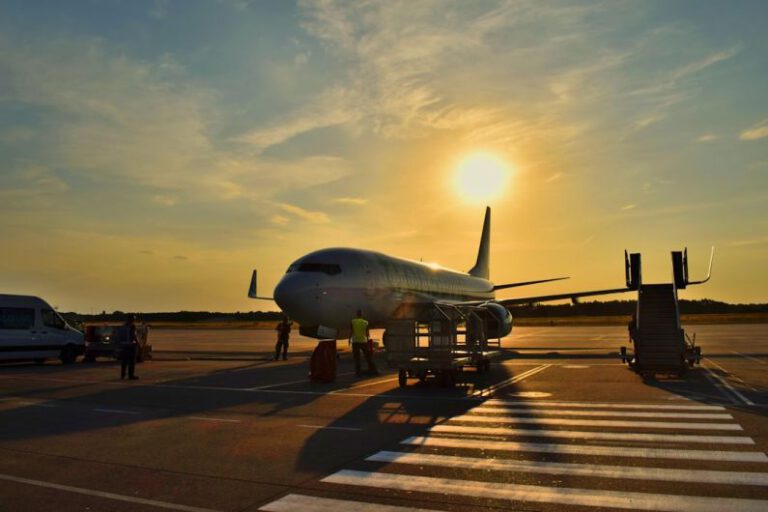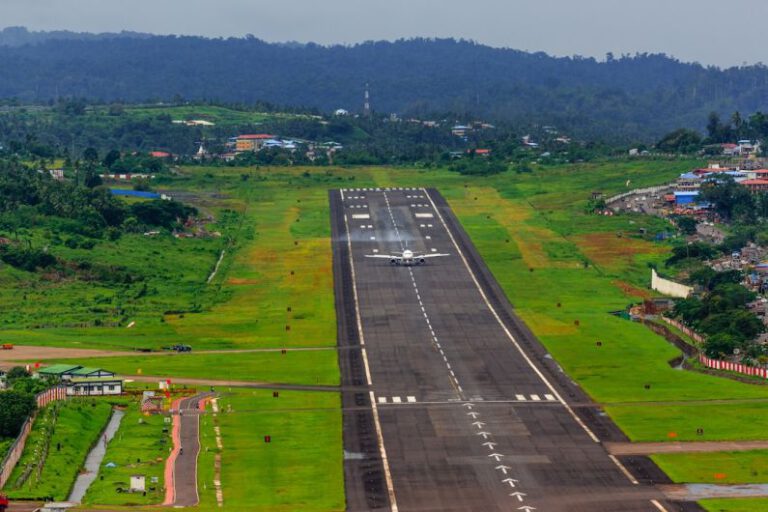Jet-set Sustainability: Solar-powered Terminals
As the world becomes more conscious of the environmental impact of travel, the aviation industry is increasingly turning to sustainable solutions to reduce its carbon footprint. One innovative approach that is gaining traction is the use of solar power to fuel airport terminals. These solar-powered terminals are not only environmentally friendly but also cost-effective in the long run, making them a win-win solution for both airlines and the planet.
Solar Energy Revolutionizing Airport Operations
Airport terminals are bustling hubs of activity, consuming significant amounts of energy to power lighting, air conditioning, security systems, and other essential services. By harnessing the power of the sun, airports can significantly reduce their reliance on traditional energy sources, thereby lowering their operating costs and carbon emissions.
Solar panels installed on the roofs of terminals capture sunlight and convert it into electricity, providing a renewable and clean source of energy. This not only reduces the carbon footprint of airports but also helps them become more self-sufficient in terms of energy production. Additionally, excess energy generated by solar panels can be stored in batteries for use during periods of low sunlight or high demand, ensuring a reliable power supply.
Enhancing Passenger Experience and Comfort
In addition to the environmental benefits, solar-powered terminals also contribute to enhancing the overall passenger experience. By utilizing natural light and solar energy, airports can create a more pleasant and sustainable environment for travelers. Sunlight streaming through large windows and skylights not only reduces the need for artificial lighting but also creates a bright and airy atmosphere that is welcoming to passengers.
Moreover, solar power can be used to operate air conditioning systems, ensuring a comfortable indoor temperature without relying on fossil fuels. This is particularly advantageous in regions with abundant sunlight, where air conditioning is a crucial component of passenger comfort. By using solar energy to power cooling systems, airports can reduce their energy costs and environmental impact while providing a more enjoyable experience for travelers.
Resilience and Energy Independence
One of the key advantages of solar-powered terminals is their resilience to power outages and disruptions in the electrical grid. In the event of a blackout or grid failure, airports with solar installations can continue to operate essential services using the energy stored in batteries. This not only ensures uninterrupted operations but also enhances the overall reliability of airport facilities.
Furthermore, solar power provides airports with a level of energy independence, reducing their vulnerability to fluctuations in energy prices and supply chain disruptions. By generating their own electricity on-site, airports can mitigate the risks associated with traditional energy sources and achieve greater stability in their operations. This energy independence is especially valuable during times of crisis or emergencies when access to reliable power is essential for maintaining airport functions.
A Sustainable Future for Aviation
The adoption of solar-powered terminals represents a significant step towards creating a more sustainable future for the aviation industry. By embracing renewable energy sources and reducing their reliance on fossil fuels, airports can significantly reduce their environmental impact and contribute to global efforts to combat climate change. Moreover, the cost savings and operational benefits of solar power make it a compelling choice for airports looking to improve their efficiency and resilience.
In conclusion, solar-powered terminals are not only a practical and cost-effective solution for airports but also a testament to the industry’s commitment to sustainability. By harnessing the power of the sun, airports can transform their operations, enhance the passenger experience, and pave the way for a greener and more resilient aviation sector. The future of air travel is bright, thanks to the innovative integration of solar energy into airport terminals.





